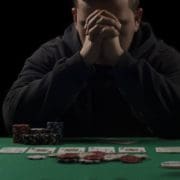What are some misconceptions about mental illness?
In the tranquil environs of Byron Shire, Anne Evans Counselling stands as a beacon of understanding in the often-misunderstood landscape of mental health. Here, the deep-seated myths and misconceptions surrounding mental illness are gently unraveled, offering clarity and hope to those who grapple with these invisible struggles.
The Myths of Mental Illness
Misconceptions about mental illness can lead to stigma, discrimination, and a profound misunderstanding of the challenges faced by individuals. These myths can also hinder those in need from seeking the support that could significantly improve their quality of life. Let’s explore some of these myths and the realities behind them.
Myth 1: Mental Illness Is a Sign of Weakness
One of the most pervasive myths is that mental illness is a result of personal weakness or a lack of willpower. At Anne Evans Counselling, this notion is dispelled with a clear message: mental illness is a complex interplay of biological, psychological, and social factors. It is no more a sign of weakness than any other illness.
Myth 2: Mental Illness Is Rare
The belief that mental illness is an uncommon occurrence is far from reality. In fact, mental health conditions are more prevalent than many might think, with statistics showing that a significant portion of the population will experience a mental health disorder at some point in their lives. It is a part of the human condition, not an anomaly.
Myth 3: Mental Illness Is Untreatable
Another damaging myth is the idea that mental illness cannot be treated. The truth is, with advances in psychological therapies and medication, many mental health conditions are highly treatable. Anne Evans Counselling emphasizes the diverse treatment approaches that can lead to recovery or successful management of symptoms.
Myth 4: People with Mental Illness Are Violent or Dangerous
Media portrayals often link mental illness with violence, creating a stigma that is largely unfounded. The reality is that people with mental illness are more likely to be victims of violence rather than perpetrators. Understanding and compassion are crucial in changing this narrative.
Myth 5: Mental Illness Is the Result of Personal Failure
Blaming individuals for their mental health conditions is a misconception that Anne Evans Counselling works tirelessly to correct. Mental illness is not a consequence of personal failure; it can affect anyone regardless of their personal strengths, accomplishments, or resilience.
Myth 6: Therapy Is Only for Those with Severe Mental Health Issues
Therapy is often seen as the last resort, but this perspective overlooks the benefits of therapeutic intervention at various stages of mental health issues. Therapy can be a tool for personal growth, prevention, and early intervention, not just a remedy for acute or severe conditions.
Myth 7: Recovery Is Simply a Matter of Taking Medication
While medication can be an essential component of treatment for some mental health conditions, it is often most effective when combined with therapy and other forms of support. Recovery is a multifaceted journey that involves learning coping skills, understanding triggers, and developing resilience.
Changing Perceptions, One Conversation at a Time
Anne Evans Counselling is dedicated to changing perceptions about mental illness through education, advocacy, and compassionate care. By addressing these misconceptions, they create a safe space where individuals can seek help without judgement and embark on a path to wellness.
The Power of Knowledge and Empathy
Education plays a vital role in dismantling stigma. Anne Evans Counselling advocates for a better-informed public, where knowledge replaces fear, and empathy supersedes judgement. When society understands mental illness, it creates an environment where those affected can live with dignity and hope.
Conclusion: Embracing Mental Health with Open Arms
Understanding mental illness requires an open heart and an open mind. By dispelling the myths that shroud mental health, Anne Evans Counselling in Byron Shire not only sheds light on these conditions but also extends a hand to those who may feel lost in the darkness of misunderstanding. It’s through this lens of clarity and support that real change can be enacted, fostering a community where mental wellness is nurtured, and every individual is respected for the complexity of their human experience.






